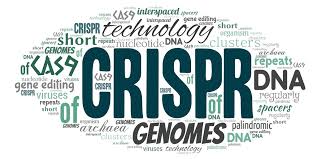Editing genes in human embryos could one day prevent some serious genetic disorders from being passed down from parents to their children — but, for now, the technique is too risky to be used in embryos destined for implantation, according to a high-profile international commission. And even when the technology is mature, its use should initially be permitted in only a narrow set of circumstances, the panel says.
The recommendations, released in a report on 3 September, were produced by experts in ten countries convened by the US National Academy of Medicine, the US National Academy of Sciences and the UK Royal Society. The document joins a wealth of reports compiled in recent years that have argued against using gene editing in the clinic until researchers are able to address safety worries, and the public has had a chance to comment on ethical and societal concerns.
“The technology is not presently ready for clinical application,” says Richard Lifton, president of the Rockefeller University in New York City and co-chair of the commission. The report — which reviewed the scientific and technical state of heritable gene editing, rather than ethical questions — advocates the formation of an international committee to evaluate developments in the technology and advise national advisory groups and regulators on its safety and utility.
The commission was formed after Chinese biophysicist He Jiankui shocked the world in 2018 by announcing that he had edited human embryos that were then implanted, in an effort to make the resulting children resistant to HIV infection. The work, which was widely condemned by scientists and yielded prison sentences for He and two of his colleagues, led to the birth of two children with edited genomes.
Unwanted changes
Although genome-editing technologies such as CRISPR–Cas9 offer a fairly precise way to edit the genome, they have been shown to generate some unwanted changes to genes, and can produce a range of different outcomes even among cells in the same embryo.
It could be years before researchers are able to iron out these difficulties, says Haoyi Wang, a developmental biologist at the Chinese Academy of Sciences’ Institute of Zoology in Beijing, and a commission member. In addition, Wang says, scientists need to develop better methods for thoroughly sequencing a human genome from single cells, so that an edited embryo can be screened in detail for unwanted genetic changes….







